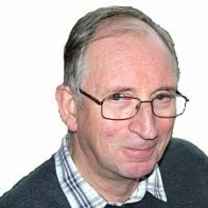
John Welford
Bio
I am a retired librarian, having spent most of my career in academic and industrial libraries.
I write on a number of subjects and also write stories as a member of the "Hinckley Scribblers".
Stories (501/0)
Philip the Arab: Emperor of Rome
Philip the Arab is so named because his family came from Syria. However, this background does not appear to have affected his behavior in office to any extent – there was nothing noticeably “un-Roman” in how he treated the role of Emperor.
By John Welford3 years ago in FYI
The Sleeping Gypsy, by Henri Rousseau
Henri Rousseau (1844-1910) was a largely self-taught French artist whose work was highly distinctive and very different from that of his contemporaries, particularly the Impressionists. There are elements in Rousseau’s work that are a foretaste of Dadaism and Surrealism, and he was greatly admired, late in his career, by artists such as Braque and Picasso.
By John Welford3 years ago in Geeks
Cruises Can Be Costly
Rosetta Mary Swinburne. Born 7th July 1993. Died 23rd January 2015. Aged 22. Our Rosie - A Bloom That Faded Too Soon. “How tragic”, Vicky thought to herself as she read the gravestone in a small village cemetery in Norfolk. “But Rosetta is about to rise from the grave and make me a lot of money”.
By John Welford3 years ago in Fiction
The sources of Geoffrey Chaucer's Canterbury Tales
The Canterbury Tales by Geoffrey Chaucer undoubtedly comprise the earliest work of literature in English of lasting merit. However, their author was a well-read man who sourced his tales from many places, some being of foreign origin.
By John Welford3 years ago in Geeks
The sinking of the Lusitania, 1915
The sinking of RMS Lusitania on 7th May 1915 – the victim of a torpedo fired from a German U-boat - has long been regarded as a major war crime and a prime cause of the United States entering World War I. However, there are questions that are still unanswered.
By John Welford3 years ago in FYI
Pioneer From Afar
Yesterday, the Sun was rising in the west when we set off from the observatory in our recovery vehicle in search of whatever it was that came down in the desert during the previous night. The three of us - Yoglan, Zibor and I (my name is Nesgan) – are astronomers who regularly scan the data for signs of approaching objects that could threaten the planet. The larger ones are monitored on a constant basis, and craft are sent to intercept and destroy them on the rare occasions when they could spell disaster, and smaller objects are left to burn up in the atmosphere should they get that close.
By John Welford3 years ago in Fiction
Damien Hirst: British artist
Every so often an artist comes along who challenges the artistic establishment to such an extent that he (sometimes she) creates a total division between those who hate him and those who love him, poses the question “but is it Art?”, and indeed makes a large sector of the public wonder if it is being taken for a ride. Should we take this person seriously or regard him merely as a purveyor of artistic snake oil? One such to hit the headlines in recent years has been Damien Hirst.
By John Welford3 years ago in Geeks
Macbeth Demands a Recount
Macbeth, recently defeated and beheaded at the hands of Macduff, duly arrived on the bank of the River Styx to be rowed across to Hades by Charon the ferryman. However, he proved to be a reluctant passenger, not least because he saw no reason to give the infernal boatman his usual fee.
By John Welford3 years ago in Fiction
The two funerals of Thomas Hardy
The novelist and poet Thomas Hardy died, aged 87, on 11th January 1928 at Max Gate, his home on the edge of Dorchester, Dorset. His final full-length novel, “Jude the Obscure” had appeared as long ago as 1895, but he continued to write poetry almost to the day he died, clocking up around 1,000 poems during his lifetime.
By John Welford3 years ago in FYI














